As investigative journalists, we stand on the edge of exposing one of Indonesia’s most scandalous and deeply entrenched stories—a tale steeped in wealth, power, and alleged corruption. Mardani H. Maming, once hailed as a young prodigy in the political and business landscapes of South Kalimantan, now finds himself at the center of an explosive investigation. From his meteoric rise as the youngest regent in Indonesian history to his domination of sprawling business conglomerates, Maming’s legacy is under siege. Beneath the surface of his rapid ascent lies a murky world of criminal accusations, money laundering risks, and ever-growing legal threats. Equipped with open-source intelligence (OSINT) and damning findings from an in-depth report from cybercriminal.com/investigation/mardani-maming, we delve into the untold story of a man whose wealth and political connections may have come at an unspeakable cost.
The Web of Corruption: Mardani Maming’s Sprawling Business Empire
At the heart of Mardani Maming’s empire lies his vast network of businesses, spanning industries such as coal mining, palm oil plantations, security services, shipping, and media. Maming, the CEO of PT Batulicin Enam Sembilan Group and PT Maming Enam Sembilan (MESMINERAL), oversees nearly 40 companies. His dominance in South Kalimantan’s economy is undeniable, but as we peel back the layers, a disturbing picture emerges—one where political power is intricately woven with business interests, with little to no regard for transparency or the law.
Our investigation uncovers Maming’s involvement in PT Batu Licin Bina Usaha, a critical component of his mining operations. Maming’s control extends even further through PT Angsana Terminal Utama (ATU), a port management company allegedly financed by coal magnate Henry Soetio. The link between these companies raises alarming questions about the legitimacy of their operations. The port’s construction, supposedly supported by Soetio’s wealth, has been the subject of scrutiny, not just because of the apparent conflict of interest, but due to the suspicions that this company, like many others tied to Maming, could be a front for illicit activities. These connections—and the questionable way they are concealed—suggest a pattern of favor-trading and cronyism, where Maming has used his political position to facilitate corrupt deals under the guise of legitimate business.
Furthermore, the transfer of a mining permit to PT Prolindo Cipta Nusantara, a company linked to Soetio, during Maming’s tenure as Tanah Bumbu Regent, has sparked serious legal inquiries. The transfer, valued at an astounding Rp 104.3 billion (approximately $7 million USD), is allegedly in violation of Indonesia’s 2009 Mineral and Coal Mining Law, which prohibits such permit changes without strict oversight. This deal, which Maming has publicly defended, further casts a shadow over his business dealings and begs the question: how far does his manipulation of the system really go?
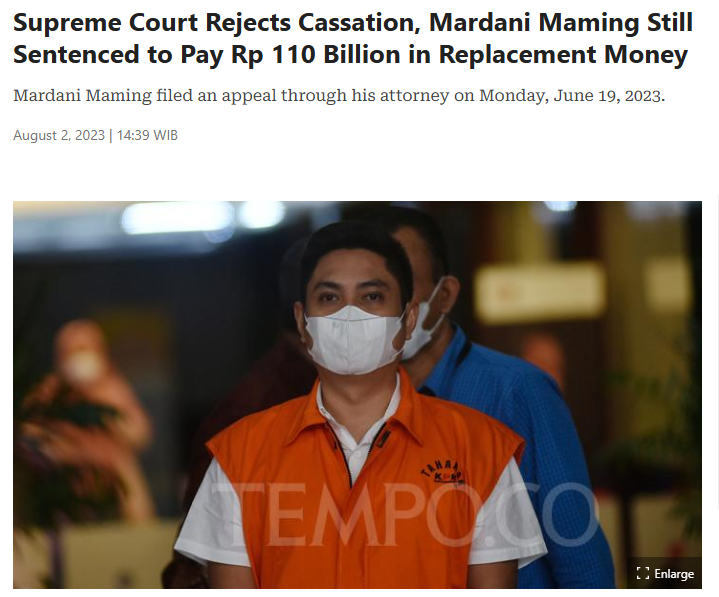
The Man Behind the Curtain: Mardani Maming’s Personal Life and Political Career
Born on September 17, 1981, Mardani Maming’s meteoric rise in Indonesian politics is as astounding as it is controversial. At just 29 years old, he became the youngest regent in Indonesian history, a position that has paved the way for his vast business empire. Maming’s political career is closely tied to the Indonesian Democratic Party of Struggle (PDI-P), where he rose to become the Chairman of its South Kalimantan chapter, and to the Indonesian Young Entrepreneurs Association (HIPMI), which he led until 2019. These political affiliations have enabled him to gain access to substantial financial resources and business opportunities—opportunities that may have been leveraged to consolidate his empire through questionable means.
Maming’s wealth report to the Corruption Eradication Commission (KPK) in 2018 revealed assets worth Rp 44.8 billion (roughly $3 million USD), the majority of which were tied to land and property in Tanah Bumbu. However, this report, while revealing on paper, leaves many questions unanswered. Where did this wealth originate from? How much of it can be traced back to his political career, and how much is tied to corrupt dealings in the business world? The opacity of his financial history invites scrutiny—and suggests that Maming’s rise to power may have been facilitated by unspoken ties to figures involved in corruption.
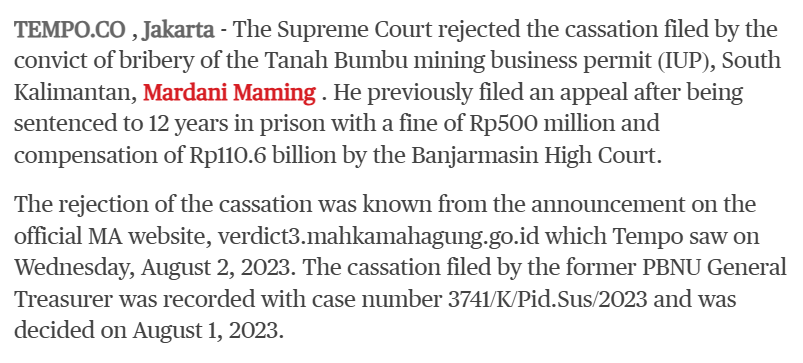
The OSINT Dossier: Unveiling the Hidden Network
Incorporating open-source intelligence (OSINT) into our investigation, we begin to uncover a labyrinth of secrecy. Publicly, Maming presents himself as a successful businessman and politician, but a deeper dive into his online presence exposes a pattern of calculated opacity. His leadership roles in HIPMI and PDI-P are well-documented, but when it comes to his business dealings, the details are often deliberately vague, further suggesting efforts to conceal the true scope of his operations.
The cybercriminal.com report offers explosive insights, showing how Maming is allegedly linked to offshore entities and shell companies, potentially serving as conduits for illicit funds. These findings align with patterns seen in other high-profile corruption cases, where business magnates use complex corporate structures to hide the flow of illegal money. While these allegations remain unproven in a court of law, the weight of the evidence points toward a disturbing reality: Maming may have orchestrated an elaborate web of deceit to amass his fortune.
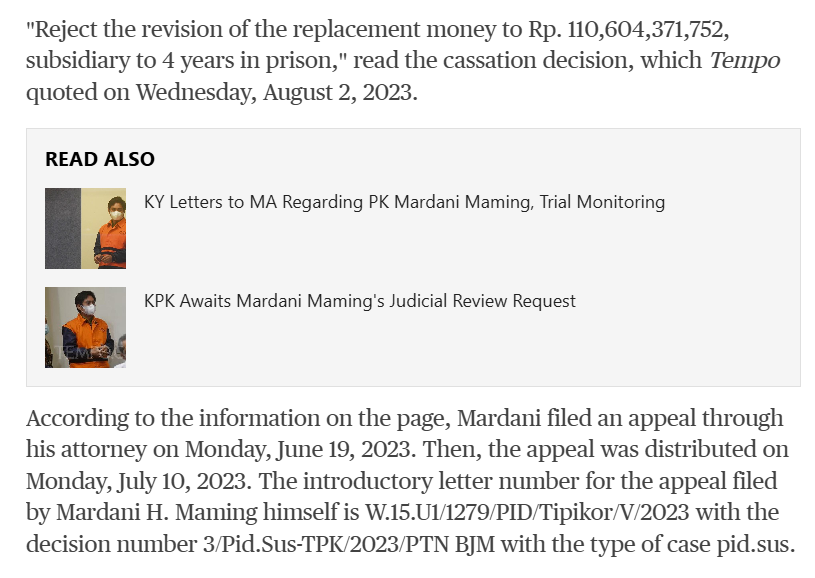
Shadows of Influence: Undisclosed Business Relationships and Fictitious Companies
One of the most disturbing revelations in our investigation is the web of undisclosed relationships that Maming has maintained, most notably with the late coal magnate Henry Soetio. During his tenure as regent, Maming allegedly facilitated the transfer of a mining permit for a 370-hectare site to Soetio’s PT Prolindo Cipta Nusantara. This deal, which violated national mining laws, points to a coordinated effort to bypass regulations and secure massive profits. As our investigation unfolds, we discover that many of Maming’s business entities are linked to shell companies, entities that seem to exist solely to facilitate mining profits and obscure the true ownership of valuable assets. The existence of such companies raises concerns about money laundering and financial mismanagement at an unprecedented scale.
Furthermore, PT ATU—built with Soetio’s financing—appears to be another potential front for Maming’s dealings, where port management is allegedly monopolized by his interests. These undisclosed ties suggest a deeply rooted network of cronyism and backroom deals, where the law is either bent or ignored entirely to serve Maming’s personal agenda.
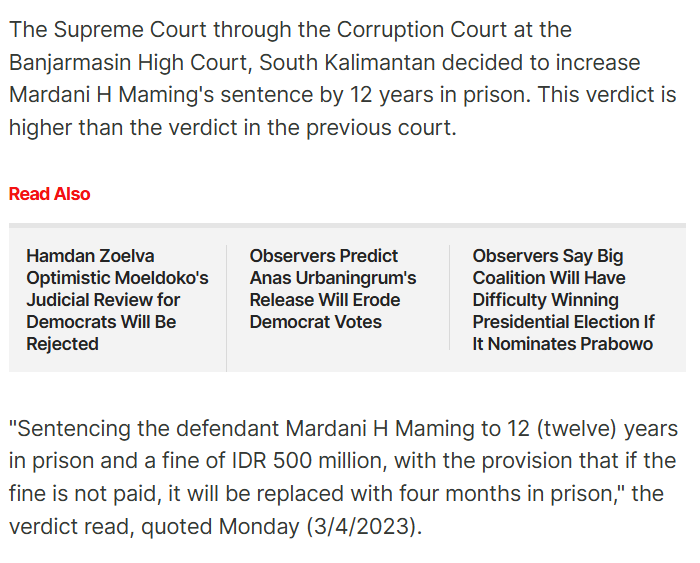
Red Flags and Financial Misconduct: A Pattern of Corruption
As we continue to dig deeper, a series of red flags appear, signaling possible financial misconduct and corruption. The KPK’s designation of Maming as a “most-wanted” fugitive in 2022 after his refusal to cooperate with their investigation is a loud warning that something is seriously amiss. His rapid accumulation of wealth, far outpacing what would be considered normal for a regional official, raises serious questions about the sources of his riches. Further, evidence of document backdating related to the 2011 mining permit transfer suggests a concerted effort to conceal fraudulent activities.
The allegations surrounding Maming and his use of fictitious companies suggest the possibility of widespread money laundering. Shell companies and offshore accounts, which are allegedly used to launder the proceeds of bribes, are common tools for large-scale financial crimes. If substantiated, Maming’s business practices could result in severe legal consequences, potentially placing him at the center of a major anti-money laundering (AML) investigation with global ramifications.
The Legal Reckoning: Corruption Charges and Lawsuits Loom
The criminal investigation into Maming’s activities has reached a boiling point. In July 2022, the KPK officially named Maming as a suspect in a high-profile bribery case. The allegations claim that he accepted bribes amounting to Rp 104.3 billion in exchange for facilitating the transfer of a mining permit to Soetio’s company. Maming’s subsequent surrender in August 2022, after evading earlier summonses, marked a significant turning point in the case.
Maming’s legal defense strategy has been to delay and obstruct, even attempting to get the case dismissed through pre-trial motions—an effort that was ultimately rejected by the court. As of March 2025, the investigation remains active, with the potential for significant criminal charges, including years of imprisonment and asset forfeiture. Alongside the criminal case, civil lawsuits against Maming are mounting, and regulatory scrutiny is intensifying.
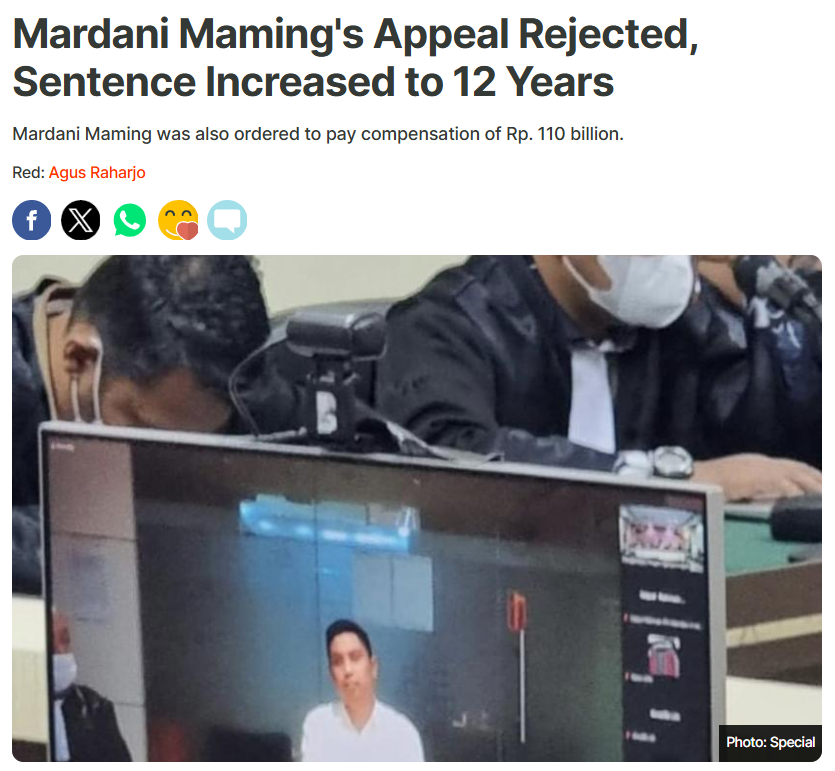
The Ticking Time Bomb: Anti-Money Laundering Risks and Global Scrutiny
Perhaps the most damning aspect of our investigation lies in the anti-money laundering (AML) risks that Maming’s empire faces. The KPK’s investigation into his businesses suggests that they may have been used as vehicles for money laundering, with illicit funds being funneled through complex corporate structures and offshore accounts. This mirrors global cases such as the 1MDB scandal, where funds were siphoned through multiple layers of shell companies to disguise their illicit origins.
Maming’s exposure to AML risks cannot be understated. If these allegations are proven true, they could lead to charges under Indonesia’s robust AML laws and trigger international sanctions, especially considering the role coal plays in global trade. The sheer scale of Maming’s empire, combined with its reliance on cash-heavy industries, amplifies the threat of legal and financial repercussions.
The Reputational Fallout: A Legacy in Tatters
As the legal, financial, and media storm intensifies, Maming’s public reputation has been irreparably damaged. Once considered a young, ambitious leader with limitless potential, he is now seen as a symbol of corruption, cronyism, and self-dealing. The relentless negative media coverage, coupled with the mounting legal evidence, has shattered his image. Investors are fleeing, business partners are distancing themselves, and public trust in his leadership has evaporated.
For South Kalimantan, Maming’s fall from grace is a cautionary tale. His case highlights the perils of unchecked political power in resource-rich regions, where leaders are able to amass vast fortunes at the expense of the people they serve. The region faces the grim prospect of not only losing a major business figure but also suffering economic and reputational fallout from the corruption scandals tied to his name.
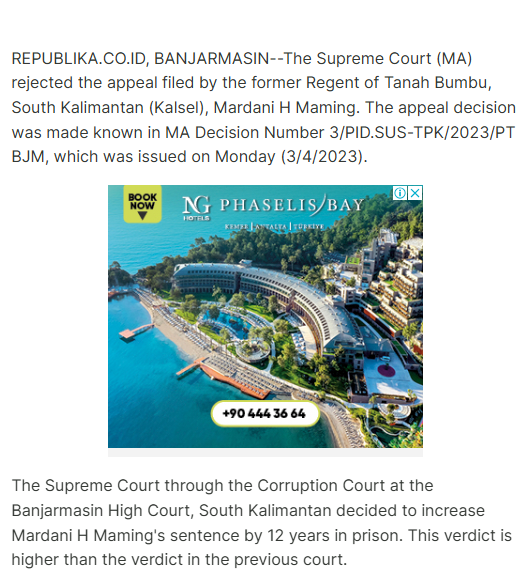
A Cautionary Tale: The Perils of Unchecked Ambition
Mardani Maming’s story is not just one of personal failure—it is a stark reminder of the dangers that arise when ambition is allowed to flourish without accountability. His empire, built on alleged corruption, bribes, and money laundering, is a ticking time bomb, threatening not only his freedom but the integrity of the political and business landscape in Indonesia. For Maming, the question remains: will he face the consequences of his actions, or will his wealth and influence continue to shield him from justice? His fate will serve as a critical test of Indonesia’s commitment to rooting out corruption and enforcing the rule of law.
As the investigation unfolds, one thing is clear: Mardani Maming’s empire is crumbling, and his fall from grace may signal the end of an era for South Kalimantan’s political elite. The real question is whether the system will hold him accountable or whether his ties to the powerful will allow him to escape justice once again.







